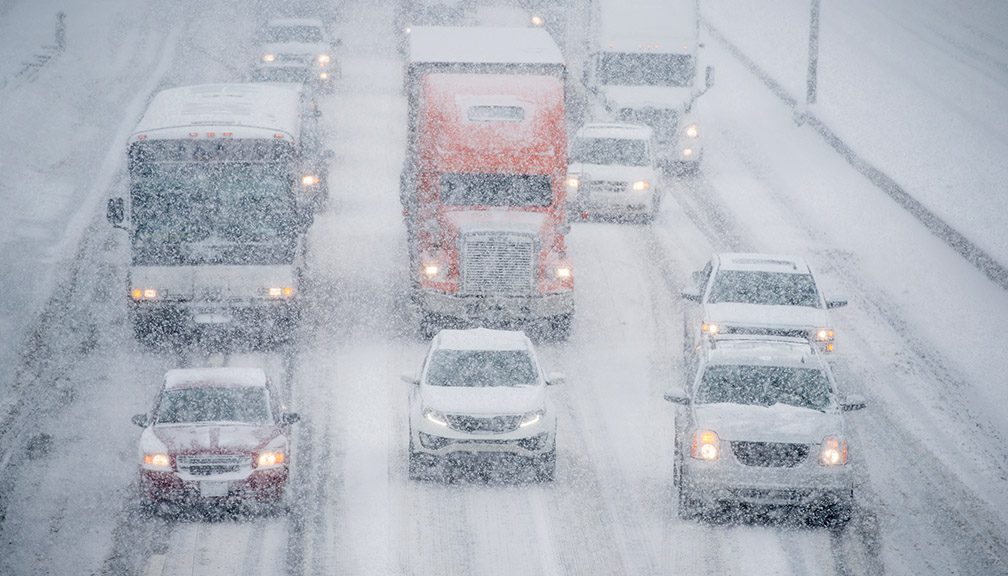7 winter driving safety tips for commercial vehicles.

Winter weather can make driving nerve-wracking, especially when you’re a commercial driver in a large vehicle. With freezing rain, ice, snow, and more, it’s hard to guess what’s going to happen when you’re on the road. There are some simple precautions to take that can make the road safer for you, your vehicle, and the vehicles around you. Follow along for winter driving safety tips for the upcoming winter season.
Complete regular vehicle checkups. A great way to prevent future problems is to look over your vehicle or fleet before hitting the road. Check the vehicle’s engine oil, tire pressure, and antifreeze levels consistently. Own an older vehicle or one that’s had issues in the past? Have it looked over by a professional to ensure it’s in good shape for the winter weather.
Pack the right supplies. When the temperature gets too cold or the unexpected happens, keeping provisions in your vehicle can be lifesaving. Stock commercial vehicles with an extra jacket and gloves, an ice scraper and snow brush, jumper cables, blankets, bags of sand or salt, and a flashlight. Let drivers know what items are in the vehicle and where they can access them in the event of an emergency.
Be overly cautious. Bad weather affects everyone on the road, so take extra care when driving. Look up the weather before leaving and drive at an appropriate speed for the conditions. If it’s wet, icy, snowing, foggy, or dark, put extra space between you and the vehicles around you. Stay alert and look at other vehicles for warning signs of bad conditions. If you see vehicles driving with their hazard lights on, slowing down, or on the side of the road, take it as a sign to use even greater care.
Pay attention to resources. Listen to the radio for weather and road conditions while driving. When parked or at an overnight stop, talk to other commercial drivers for additional information on conditions. If you’re a timid winter driver, try to talk to a seasoned driver for safety advice and best practices they can share.
Always keep your vision and vehicle clear. It can be a hassle during the cold temperatures, but it’s important to brush off your vehicle. Scrape ice and brush snow from your windshield, windows, front and rear lights, and reflective tape for the best visibility. Another part of keeping your vision clear is avoiding distracted driving. Don’t get caught up looking at your phone, radio, or other distractions. Keep your eyes on the road and your hands on the wheel.
Treat diesel fuel. Diesel is common in commercial trucking, but it doesn’t always fare well in low temperatures. Diesel anti-gel can be a great help to prevent problems like crystallization in winter weather. Stay aware of your fuel quality and when it’s necessary to take action.
Make the best call for you. No load is worth putting yourself at risk. When the weather or roads are making you uncomfortable driving, find a spot to pull over. Be sure the place you stop is safe for you and everyone else on the road, too. Try to wait for the worst of the conditions to pass before you start driving again. Being safe is always the highest priority.
Winter roads can be highly unpredictable and dangerous, especially for large commercial fleet vehicles. These winter driving safety tips can help reduce risk and avoid unwanted surprises while navigating the conditions. Commercial auto insurance can also provide peace of mind. Talk to a local, independent agent about the protection today.







